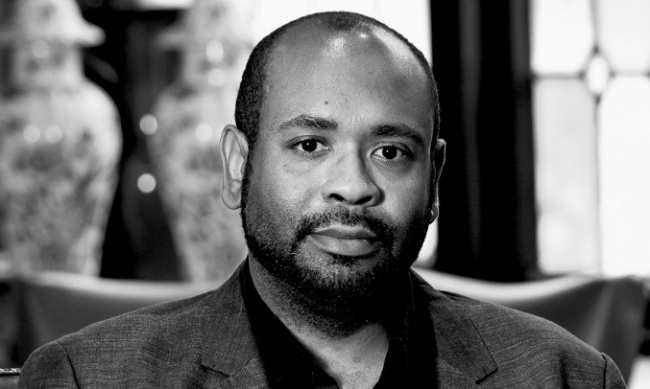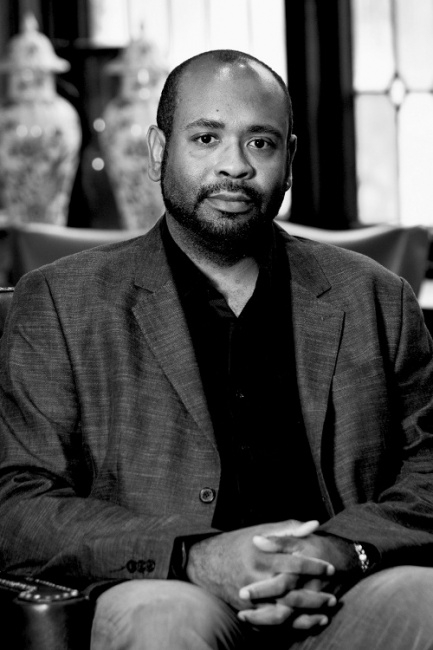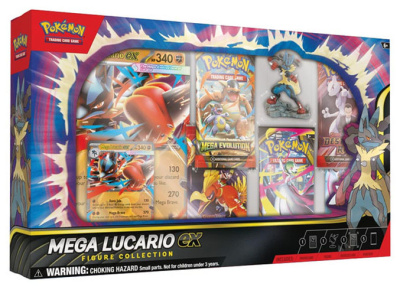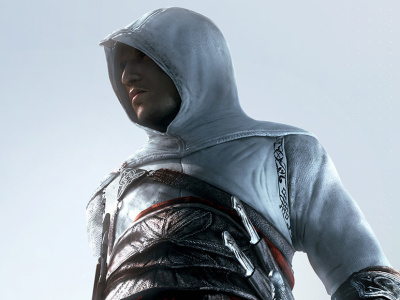We reached out to Lion Forge CEO and co-founder (with Carl Reed) David Steward II to find out more about the company, which has hired a major roster of management and editorial talent over the past several years and is gearing up publishing across categories.
In Part 2 of this two-part interview, we talk about Steward’s views of the superhero business, lessons learned from the company’s early years, the future of Lion Forge, and expanding into games. In Part 1, we talked about the origins of Lion Forge, its financing, the company’s editorial goals, and the kids market.
One area Lion Forge is in that’s more mature is the superhero market; you've got the Catalyst Prime superhero universe. That's historically been a really tough area for new publishers to get into because you're competing with these two giant companies that dominate that part of the market. Talk about what your thoughts are in trying to create something that competes in that superhero realm.
When we set out to do our super hero universe, we wanted to create something that was a little bit more grounded than the Marvel and DC universes. Where others see saturation, we see an opportunity because with the two major brands you have all of this 50‑plus‑year history to contend with, and machinations of characters, and everything else. That's very hard to jump in.
I take the casual fans to heart in some of this, the casual fan that's just recently watched one of the Marvel movies that wants to now read up on one of those characters. It's very difficult to figure out where to start, where to jump in.
Also, I think both of those brands have been very much plagued by inauthenticity when it comes to portrayals of minority characters, female characters, and other types of characters. We wanted to rewrite the way that we're going to produce things.
One, going back to our editorial guidelines and making sure we have authentic representation in our creative groups that matches what we're producing in terms of content. We wanted to make sure that we created a diverse universe where everybody can see themselves in the various characters, as well as have creative groups that are authentically portraying those characters.
In addition, because it's a new universe, it's easy for people to jump in because you're starting at the beginning.
Other things that we've implemented to make it easier for people to get into our universe is our numbering system. We look at volume and issue numbers. We collect each one of those volumes as a self-contained story. It makes finding where you are and being able to start a lot easier.
The other thing I would say is that there's been a big failure on the part of both Marvel and DC on the comic side of things. Something that they were really good at (which is why they are popular today) is that they captured the hearts and minds of youth of certain generations. For my generation and the generation before, there was content completely aimed at that market. Now all the content has pretty much focused on 40‑year‑olds and up.
As you'll see as we roll out the universe more, we're going to be putting some emphasis on those middle grade and teen readers in the content that we're developing, and trying to seize the market again and get new readership at that level for some of the characters and things that we're creating. We want those characters to be able to follow them as they age and grow, and be those next tentpole superheroes that you'll see over the next few years.
It's been a couple of years since you started to gear up the print publishing. What have you learned in those years, and how is that affecting what you're publishing now and what you're looking at publishing in the future?
Print publishing's rough. [laughs]
Welcome to the comics business.
Exactly. There's definitely a lot of conversation out there. You have to understand how to appropriately plan what you're doing, especially from the distribution standpoint, from the timing standpoint, from the marketing standpoint. You have to understand not just the fact that you have some cool content to produce, but also understand the person that's got to sell that at the other end, whether it's the retailer or the store.
You have to keep all of this stuff in mind as you're creating. It's a very complex system, and as I mentioned before, it's even made more difficult with the lack of a lot of information out there. It's hard to do a startup company because you only have your own historical information plus information from places like yours. Some of the older publishers have some key advantages because they have the learnings of 10, 15, 20 years of publishing to help make their decisions.
For new publishers, you're going to make a bunch of mistakes as you're growing out your business because you don't have as much of a basis to work from. You also have to build a brand reputation of quality and consistency in the marketplace in order to get people to buy your product.
Definitely a lot of learning in terms of building this but it's been a very educational experience, I'd say.
Is it a fair assessment to say that the most successful material you've been doing has been in the graphic novel business as opposed to the periodical comics business?
Yes. Some of our larger books, especially books like Lighter than My Shadow, which was Amazon's graphic novel of the year last year, definitely had more of the graphic novel bookstore space.
We strive to service both sides of the market equally with the different content that we're producing. We're still very much keeping up with our periodical publishing programs and what we're doing.
You talked about how Marvel and DC are directed at this older audience that's been buying comics for a while. That seems to be the audience that, in some cases at least, is buying primarily at the comic stores. The newer audiences are buying in the book channel. Maybe this newer kind of content you're publishing is a better fit for that channel?
Possibly. Like I said, we're trying to publish comics for everyone. I think we are making some headway with some of the older fans, especially with our Catalyst Universe and some of the directions that we've been moving on that.
It takes time for people to want to make changes and buy into something that's new. They want to see that you have staying power, that you're going to be around. "If I'm going to get invested in this, I don't want to walk in one week, two months from now and see that it's not there." You know what I mean?
I think some of that is just taking time and being patient with that part of the marketplace. Whereas new readers, they'll buy whatever they're interested in at the time. I think it's the quick buy‑in versus the longer time it takes for the direct market to buy into things, especially new publishers.
That goes back to our question about financing and the observation that new comic companies can have a tough go at the beginning. You mentioned that buyers want to be assured that if they’re going to invest time and money in this universe, it’s going to be around for a while. Could you address that question directly? What's your level of patience as the founder and supporter of Lion Forge? What's your timeline in terms of how long you're in this for?
We're definitely in for the long haul. We've been in this for, what was it, 2011, so it's seven years now. [laughs] Some things, you have to go into it understanding that it is a long bet. With our Catalyst Universe, for example, we started off planning out four years ahead at minimum and continue to do that because we know that, eventually, by keeping the course, keeping up good content, we'll eventually break through. It's definitely starting to pay off.
What does Lion Forge look like in five years? What are your goals in terms of where you're headed?
From a direct market standpoint, we want to be either the third or fourth largest publisher in the next five years. I would like us, definitely, to be in the top five on the bookstore side of the market, as well. I'd like us to be a thought leader in terms of bringing new readers into the marketplace.
You know the numbers. Our general market growth, if you look at everything, is anemic right now, especially when you balance that against the popularity of the content itself and how it's been utilized by Hollywood and video games and everybody else.
I think that we'd like to be a leader in trying to bring people back to the source and get more people to read comics in general.
This is the first time you've talked about those other media which are tied to comics. Does Lion Forge have plans in that direction?
Absolutely. A lot of times, the best way for things to move forward faster are to have other media to change market perception. The Walking Dead was only selling about 10,000 copies before it got picked up and turned into a show, and now it's selling hundreds of thousands of copies, right?
You can't ignore the fact that broadening the reach and the marketing through those other mediums inured back to book sales. We definitely have had different folks look at our content for different things.
We also have some other companies underneath our holding company umbrella where we're looking at how we potentially do some things with our content outside of comics as well.
In terms of your future development (we talked to Geoff about this a little bit, see "Middle-Grade RPGs to Anchor New Lion Forge Game Line"), you're expanding into games for the first time. That's the first non‑comics category you've been in. Tell us about that decision.
Games, for us, was a great extension category because a lot of the same fan base coexists there. It's a great storytelling medium, and it uses a lot of the same elements we're talking about, a lot of graphic storytelling.
When we started with Rolled and Told, we looked at an opportunity to try something to the market that hasn't been there for a while and have a way for people to experience gaming in a different way, the ability for them to jump into some new campaigns on a regular basis and bring together the community a little bit underneath that.
We also have some other plans for some future games, as well, that we will be announcing in the future. It's definitely been a fun extension because, again, we have a lot of gamers in our office that have been excited about us developing a lot of this content that we're doing.
Last question: Where does the name Lion Forge come from?
I get that question a lot. The original logo that we had, had a lion's head. We were sitting around the office trying to come up with a name for this new comics company. I think Carl was the one who threw out Lion Forge. We were like, "Ooh, that sounds really, really cool." It gets us coming together and the lion being the king of the jungle. We liked that. From there, one of our guys developed the logo as it is now. It stuck from there.
Click here to go back to Part 1.

The Superhero Business, Lessons Learned, and the Future
Posted by Milton Griepp on August 30, 2018 @ 4:54 am CT
MORE COMICS
From Dynamite Entertainment
August 22, 2025
Here's a preview of Sonja Reborn #1, published by Dynamite Entertainment.
Mecha, Mystery, and Martial Arts from Famed Hong Kong Artist
August 22, 2025
Veteran Hong Kong artist Seto mixes martial arts, robots, and a quest for missing scientists in his new graphic novel.
MORE NEWS
New Boxed Set
August 22, 2025
The Pokemon Company International will release Pokemon TCG: Mega Lucario ex Figure Collection , a new boxed set, into retail.
Offers Retail Tier
August 22, 2025
Mantic Games' Assassin's Creed: Animus has hit Kickstarter and has a retail rewards tier.








